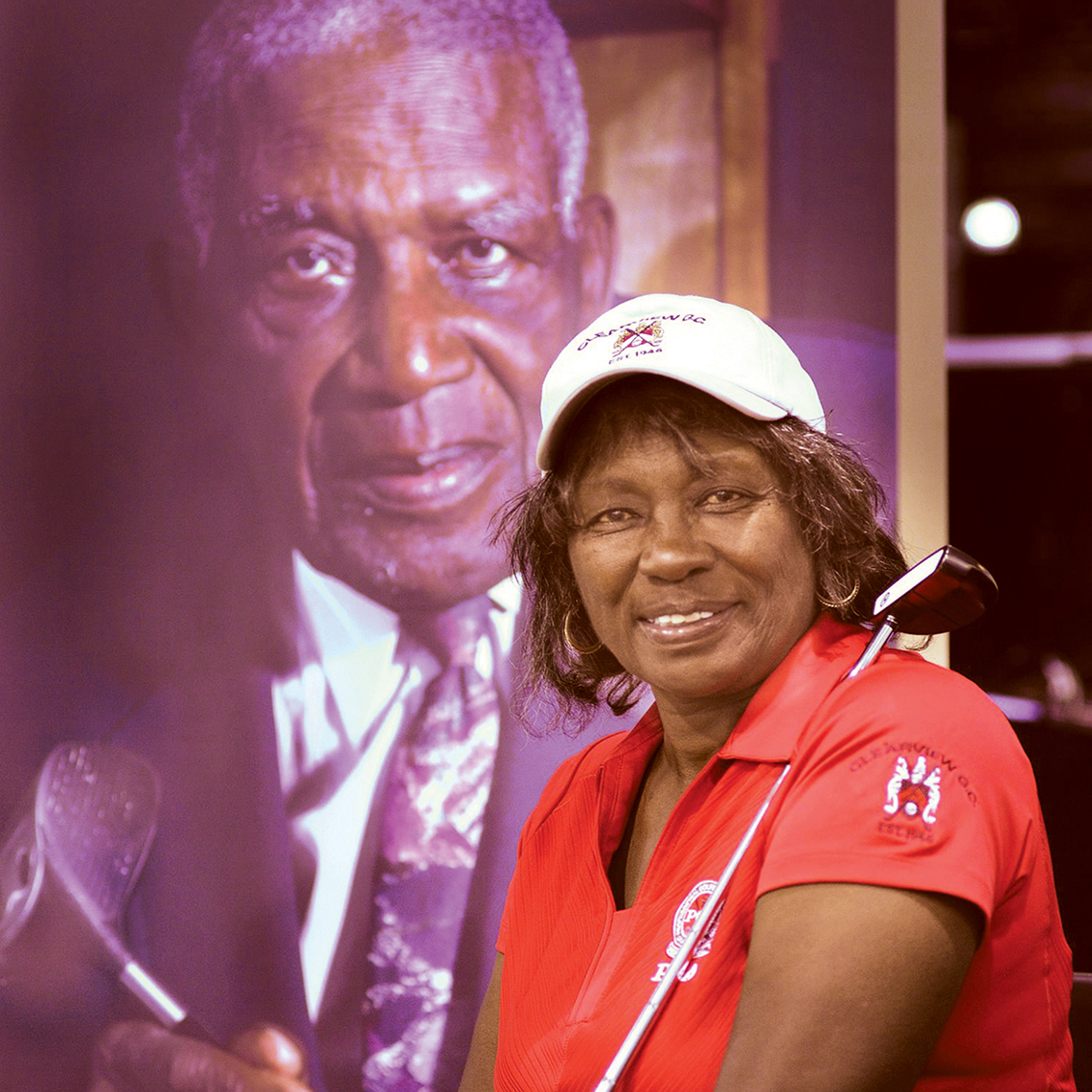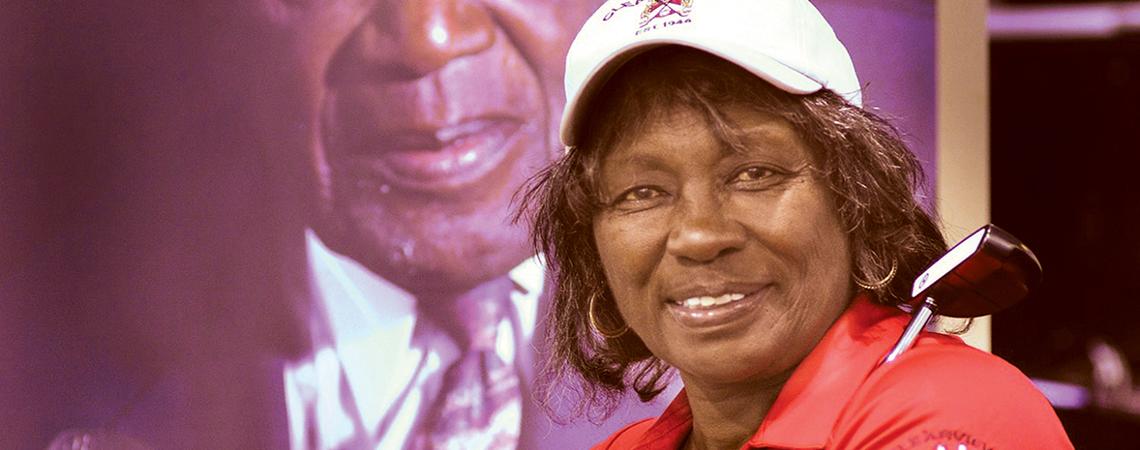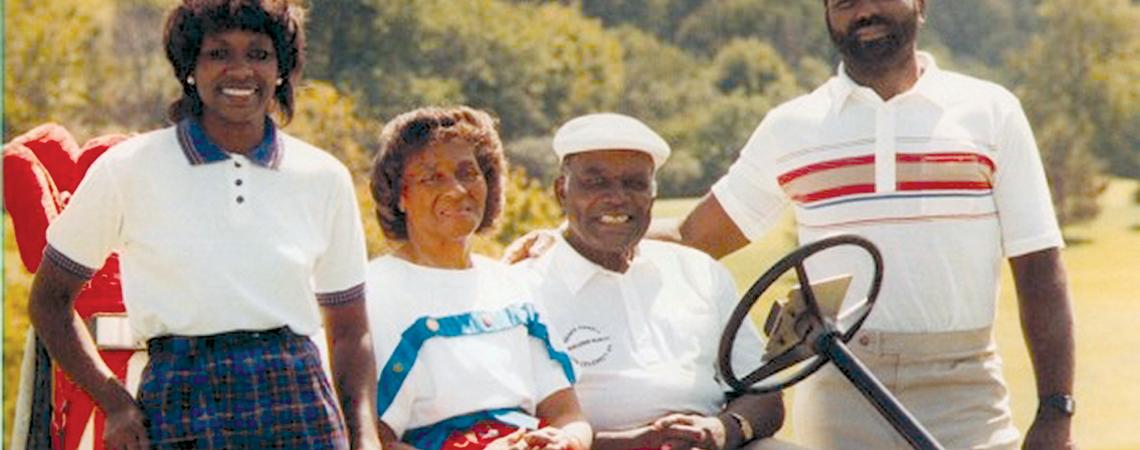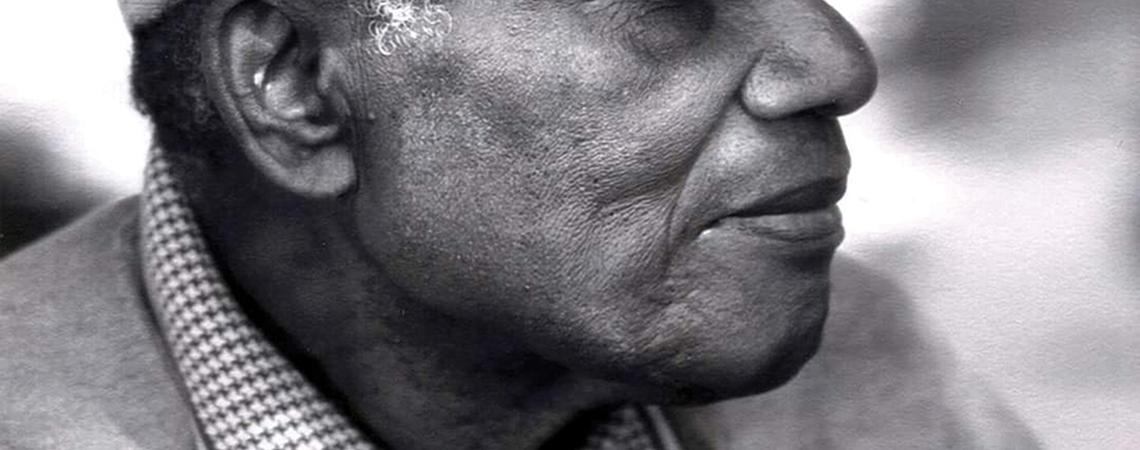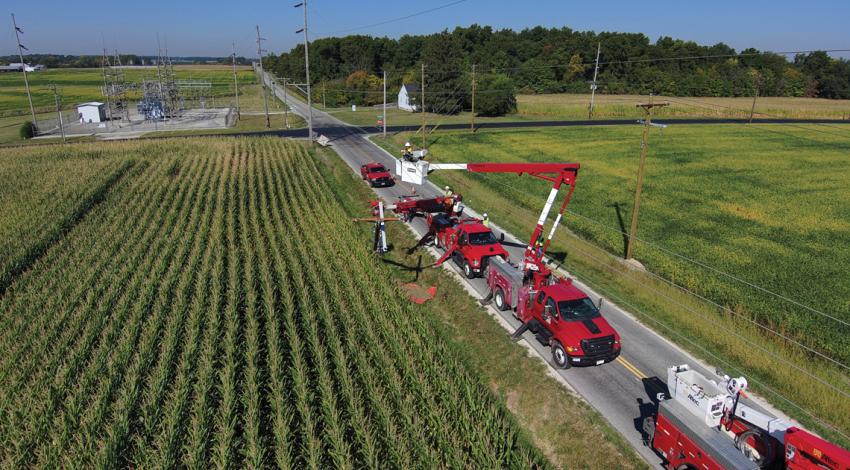Work hard. Be twice as good. Don’t let anyone else define you. Find your way around obstacles.”
The life lessons that Bill Powell instilled in his daughter, Renee Powell, were sharpened with his boots on the ground … and his golf shoes on the course.
Bill Powell served in the Army Air Forces in World War II, and as the war ended, he enjoyed playing a little golf on the renowned courses in Scotland. Upon returning stateside, however, he found he was barred from many golf courses because of his race. Undeterred, the young Army veteran found a solution.
He built his own golf course. By himself. By hand.
Ever since her father built a world-renowned golf course in Canton, Renee Powell has spent a lifetime opening doors to the game.
Tenacity to get the job done
Working nights as a security guard, Bill would return home at dawn and get to work. Using hand tools and pulling a mower with an old Army Jeep, he transformed a former dairy farm near Canton into a nine-hole public course that he opened to all. It later expanded to 18 holes. Named a National Historic Site by the U.S. Department of the Interior, Clearview is still the only golf course in the country designed, built, owned, and operated by an African American.
“Here he was, a World War II veteran, and he was treated better in other countries than he was in America,” Renee says. “What drove him to build a golf course was being denied access. He found a way to create an opportunity for everybody.”
Powell passed that tenacity to his children. “My parents taught me to never give up,” Renee says. “They believed we all stand on the shoulders of those who came before us. You see what others went through to pave the way for you, and I saw what my parents did to pave the way for me.”
Carrying on the tradition
Today, Renee and her brother, Larry, carry on their dad’s legacy at Clearview, where she’s the head golf professional and he’s the superintendent. The two are looking forward to celebrating the club’s 75th anniversary with a host of special events planned throughout the year.
Renee and Larry grew up at Clearview and started playing golf early on. “I learned to walk and talk — and play golf,” she says. “I still have the original golf club my dad put in my hands when I was 3.”
Like her father, Renee helped open doors in the world of golf. By her early teens — with her parents fighting for her right to compete — she had won more than 30 tournaments and was the first Black girl to play in the U.S. Junior Girls Championship.
In 1967, she became the second Black woman to compete on the LPGA Tour, going on to play in more than 250 professional tournaments and winning the 1973 Kelly Springfield Open in Australia.
After leaving the LPGA, she worked as a golf pro in the United Kingdom, becoming the first female golfer ever to be given an honorary doctorate from the University of St. Andrews in Scotland. She was and is an enthusiastic international ambassador for the game, having traveled to Asia, Africa, Australia, and Europe.
Time to pay forward
It was a 1970 trip to Vietnam with the USO, however, that helped inspire Renee’s latest endeavor. Moved by that experience and fortified by her father’s military background, she launched a golf program specifically for female veterans in 2011.
The project, dubbed H.O.P.E. (Helping Our Patriots Everywhere), is a year-round, cost-free program that “brings women veterans together in a ‘safe space’ where they can have fun and connect with one another,” she says. “We use golf from a therapeutic and recreational standpoint. Most of these women have never even considered playing golf.”
But then they get hooked. “It’s very uplifting and empowering when that little ball goes airborne,” Renee says. The roster of about 50 women — up to age 81 — includes Vietnam-era veterans, as well as those who served in Desert Storm and Iraq.
“Once we kick off the season, they play on Friday evenings — that’s their time, and there’s usually food involved,” Renee says. “They not only have fun with the game but find a sense of camaraderie. They understand each other. They’ve told me this program has saved their life.”
Renee’s love of golf, cultivated early in life, has continued to inspire others.
She thinks back to a day during her touring career when she ran into another Black athletic pioneer, none other than Jesse Owens, in an Ohio airport. The two sat together in the plane and talked the entire trip, and she still remembers his words, which guide her to this day.
“You don’t have a choice to play or not to play,” she says Owens told her. “When God gives you a talent,” he said, “you have a responsibility to use that talent.”
